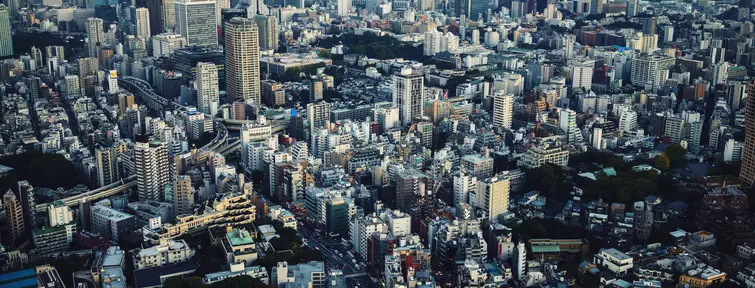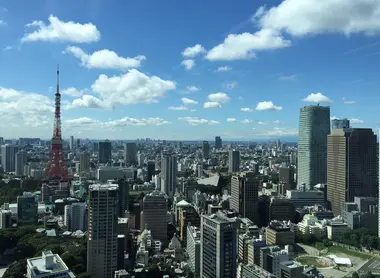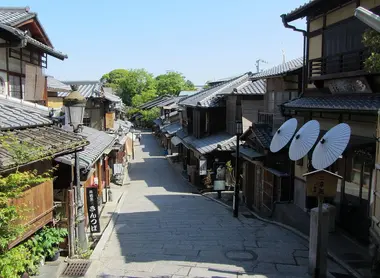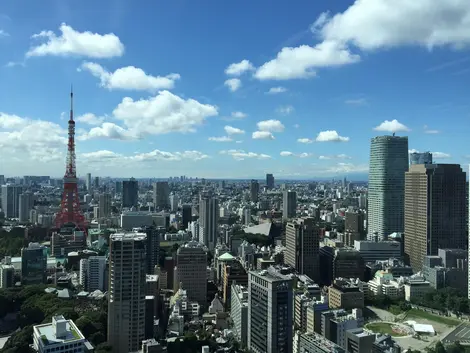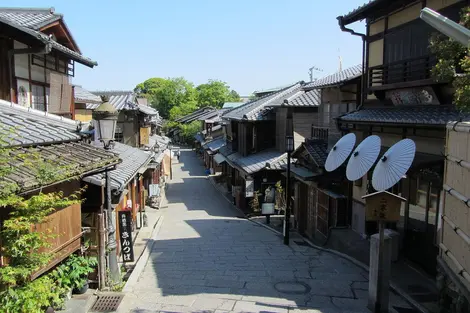Rent in Japan: a complete guide to prices and special features
- Published on : 20/05/2019
- by : J.L.
- Youtube
Everything you need to know about housing prices in Japan
The question of accommodation is central for anyone wishing to stay or settle in Japan. With rents varying considerably between regions, cities and even neighborhoods, it's essential to understand the Japanese rental system before committing yourself. Tokyo is among the cities with the highest rents in the world, but there are other, more affordable options to suit your needs. This guide takes you through the different facets of renting in Japan, from average costs to the specifics of the Japanese rental system, including possible alternatives for all budgets.
Rent prices by region and city
In Japan, rents can be particularly high, but this reality varies considerably from region to region. According to a CIJN study published in 2016, Tokyo ranked 4th in the list of cities with the highest rents in the world, after New York, Hong Kong and London, and just ahead of Paris.
The price difference between big cities and rural areas is significant. Housing in the center of Tokyonis neither as attractive nor as expensive as in Aomori. In metropolises, several factors drive up prices: proximity to services, comfort, access to transport. Apartments located near train stations are particularly popular and therefore more expensive. Buildings equipped with elevators and modern security systems also command higher rents.
Take the example of an 18m² studio apartment: in 2015, the average rent in Tokyo was 71,352 yen (around €550), with significant disparities between the capital's 23 districts. The most expensive district, Minato-ku, had an average rent of 110,000 yen (€845), while the least expensive, Adachi-ku, was around 50,000 yen (€385). For the same surface area, the most expensive cities are, in order: Tokyo, Yokohama, Kobe, Saitama and Osaka.
In addition, the size and configuration of apartments have a considerable influence on prices. The Japanese system uses codes such as 1R (studio), 1K (one-room with separate kitchen), 2LDK (two-bedroom with living-dining-kitchen) to describe housing. In Tokyo, a 1R apartment costs around 71,304 yen, a 1K around 78,391 yen, while a 2LDK can cost up to 187,922 yen.
The Japanese rental system and its peculiarities (shikikin, reikin, kôshin)
The Japanese rental system has a number of specific features that may surprise foreigners. In the Kantô region (greater Tokyo), the equivalent of 4 to 6 months' rent is required to obtain housing. These costs break down as follows:
- Shikikin (敷金): deposit equivalent to 2 months' rent, partially refundable at the end of the lease. Cleaning costs and any work required are deducted from this amount.
- Reikin (礼金): a Japanese speciality dating from the 1950s, this is a non-refundable "thank you gift" paid to the landlord, equivalent to 1 or 2 months' rent.
- Agency fee (仲介手数料): commission paid to the real estate agency, generally equivalent to 1 month's rent.
- First month's rent in advance, plus utilities and home insurance.
In addition, a guarantor is required, usually an employee of Japanese origin. This requirement can be a major obstacle for foreigners who don't know anyone in Japan. Some agencies now offer guarantor services for an additional fee.
Another important feature is that the rental contract must be renegotiated every two years (kôshin). The tenant must sign up for a new period by paying 1 to 2 months' rent, plus agency fees for the second time.
In the Kansai region (Osaka, Kyoto...), the system differs slightly: a deposit (partially refundable) of between 3 and 6 months plus agency fees is required to secure a rental.
There are two main types of lease in Japan: fixed-term leases (which account for around 10% of all leases) and standard leases (around 90%). The former specify an end date and are not automatically renewed, while the latter are generally valid for a minimum period of two years and are tacitly renewed.
Rental installation costs
In addition to the above-mentioned items (shikikin, reikin, agency fees), there are other costs to consider when settling into a home in Japan.
The tetsukekin is the reservation fee paid to guarantee that the apartment will be reserved for you. This sum, generally equivalent to one month's rent, is refunded once the contract has been signed.
Insurance costs are also compulsory. Japanese home insurance generally covers three aspects: personal property (家財保険), tenant's liability for damage to the dwelling (借家人賠償責任保険), and third-party liability (個人賠償責任).
In addition to these costs, you'll often have to pay for the fitting out of the property: changing the lock (compulsory in some cases), cleaning costs, and the installation of essential equipment such as air conditioning, which is not always included but is essential in summer.
For unfurnished accommodation, which is generally the case in Japan, you'll need to plan for the purchase of furniture and household appliances, an expense that can easily exceed 100,000 yen (around €625).
All in all, these initial costs can represent between 4 and 6 months' rent, which is a considerable sum to pay before you even move in. That's why it's essential to plan your budget carefully before you start looking for accommodation in Japan.
Housing options for students and short-stay visitors
For international students and short-stay visitors, there are several more affordable and flexible accommodation options available in Japan.
Halls of residence are often the most economical solution for students. They generally offer good value for money, with monthly rents ranging from 40,000 to 90,000 yen (€250-560). Their main advantage is their proximity to the educational establishment and the simplicity of administrative procedures, since the university generally takes care of management.
Share houses are gaining in popularity, especially among young people. In this type of accommodation, each person has his or her own private room, while sharing common areas such as the kitchen, bathroom and living room. Rents are generally between 40,000 and 80,000 yen (€250-500) per month, and administrative formalities are much simpler than for a traditional rental. Entrance fees are also low, and no guarantor is required. Agencies such as Oakhouse and Sakura House offer a wide range of options in major cities.
For very short stays, guest houses and youth hostels offer economical solutions, with rates starting from 3,000 yen (€19) per night. Some offer discounts for longer stays.
Capsule hotels, typically Japanese, are an interesting alternative for a few nights, with prices ranging from 2,500 to 5,000 yen (15-31€) per night. These establishments offer minimal but functional space, suitable for solo travelers on a budget.
For a more authentic experience, minshuku (homestays) allow you to immerse yourself in a Japanese family, while ryokan (traditional inns) offer a unique cultural experience, albeit generally more expensive.
Cost-effective accommodation alternatives
Faced with the high cost of housing in Japan's major cities, there are several more economical alternatives available to residents.
Public housing exists in Japan, and is an attractive option for those on modest incomes. Unlike private housing, they do not require high entry fees, and only a one or two-month deposit is generally required. However, they are means-tested, and demand often outstrips supply, particularly in major cities.
For those who don't mind living in older buildings, apartments built before 1981 (pre-modern anti-seismic standards) are generally less expensive. Rents can drop by around 10% after ten years, and by around 20% after twenty years. Nevertheless, it is advisable to check compliance with current safety standards.
Jiko bukken, or "stigmatized dwellings" (where a death has occurred), can offer significant reductions on rents, sometimes as much as 50%, for those who are not superstitious.
Moving away from city centers and main railway stations can also significantly reduce the cost of rent. For example, living a 15-20 minute walk from a train station rather than a 5 minute walk can reduce rent by 20-30%. However, you need to take into account the additional cost and time of transport.
For stays of a few days or weeks, renting accommodation in Japan can be a more economical and comfortable solution than staying in a hotel. Japan Experience offers modern apartments and traditional Japanese houses in various cities across the archipelago. Discover our houses here!
How to find and rent an apartment in Japan
Finding an apartment in Japan can seem complex, especially for foreigners. Here are a few tips to make the process easier.
The first reflex is often to look on the Internet. Although offers are circulating on social networks, it is generally necessary to go through a real estate agency. In Japan, rentals are rarely made from one person to another, and classified ad sites can be riddled with scams.
There are two main types of real estate agency in Japan: those specialized for foreigners ("gaijin friendly") and ordinary agencies. The former offer services in English and simplify procedures, but are often more expensive and offer the same apartments as standard Japanese agencies. If you speak Japanese or know someone who can help you, prefer local agencies to save money.
When looking for anapartment, pay attention to several key factors:location (proximity to transport and shops), anti-seismic standards (avoid buildings built before 1981), air-conditioning (essential in summer), type of toilet (some older apartments have Turkish-style toilets or toilets on the landing), washing machine location, etc.
Also check for restrictions on pets and musical instruments, which are often forbidden in Japanese apartments. Bicycle parking may also be an important criterion if you intend to use this mode of transport.
For short-stay foreigners, Japan Experience offers Tokyo, Kyoto, Kanazawa and Takayama. These accommodations offer an authentic experience and are often better value than hotels.
Cost of living and rents compared with other countries
How do Japanese rents compare with those in other countries, notably France? This comparison gives a better idea of the impact of housing on the overall budget.
Overall, the cost of living in Japan is around 20% lower than in France, with local purchasing power 8.8% higher. However, the situation varies considerably by city and type of expenditure.
When it comes to housing, Japanese rents are generally more affordable than in major European cities such as Paris. In Tokyo, a three-bedroom apartment in the city center costs around 25% less than in Paris. The difference is even more marked for property purchases, with differences of around 60%.
When comparing the two capitals, some expenses are lower in Tokyo: apartment rents, restaurant meals (up to 40% cheaper), bottled water and clothing (30-50% difference). On the other hand, other items are more expensive: fruit and vegetables (35% more for a kilo of apples), rice, cab fares (around 40% more expensive), and telephone subscriptions.
Outside Tokyo, life is even more affordable. In Kobe or Nagasaki, for example, restaurant meals can be up to 60% cheaper than in Paris, and everyday goods around 15% cheaper.
Another aspect to consider is the initial fee system, which is much more onerous in Japan than in France. Whereas in France, you generally pay a deposit equivalent to one month's rent and sometimes agency fees, in Japan, these fees can represent 4 to 6 months' rent (shikikin, reikin, agency fees, etc.).
Finally, unlike France, Japan does not have a system of housing subsidies comparable to the APL. Some large companies offer housing assistance to their employees, but this is far from systematic. Rent is generally paid at the end of the month for the following month, salaries being paid on the 25th.
For those wishing to discover the Japanese way of life during a tourist stay, renting accommodation in Japan canoffer an authentic experience, while often being more economical than a hotel for stays of a few days or more.
